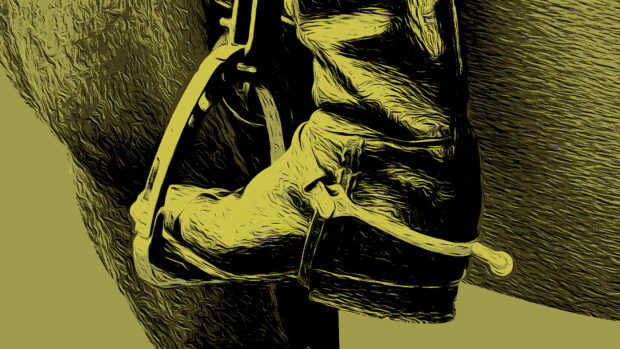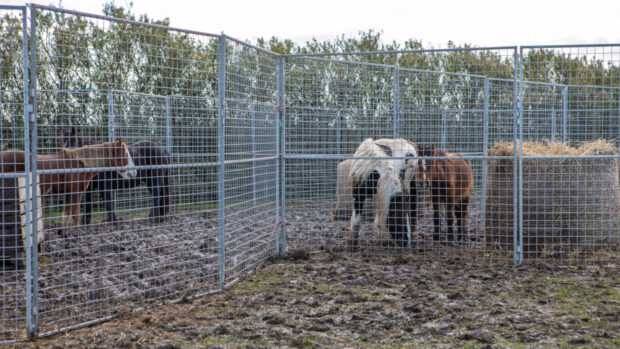Equine charities have told H&H they hope England will see “significant effects” from the new fly-grazing bill within a year.
The Control of Horses Bill received Royal Assent today (Thursday 26 March) and will become law before the general election in May.
“Fly-grazing has been increasing in part because it is so easy to get away with and there were few if any consequences for the perpetrators — the new Act will change this,” said Roly Owers of World Horse Welfare.
“We expect that by the end of the year, there will be fewer horses at risk of abandonment and neglect.”
There are estimated to be around 3,000 fly-grazed horses in England.
Legislation will make it easier for landowners, local authorities and welfare charities to take action over dumped and fly-grazed horses.
The updated law will require landowners to keep any horses placed on their land for only four working days, as opposed to the current two weeks, and will allow more options to dispose of the horses besides public sale, such as gifting them to a charity, selling them privately or euthanasia.
Although this will be at a cost to owners, charities believe this will be considerably less than the current economic burden the dumped horses put on land owners.
The law falls into line with Wales, which brought in the Control of Horses (Wales) Bill on 27 January 2014. However, there are still some issues to be resolved there.
City of Cardiff councillor Daniel De’Ath said that the council had used the act more than 70 times in the first year.
“The Act has been a positive step forward, and is a deterrent and useful tool in promoting responsible equine ownership,” said RSPCA Cymru’s Steve Carter.
“But we understand the Act is not a panacea and requires robust enforcement, and there’s more action needed to ensure equine welfare.”
Mr Owers said the lessons learned in Wales helped inform the new English law.
“England opted for a four working-day holding period for seized horses as opposed to the Welsh law, which stipulates seven days, because their experience suggested that even seven days was still needlessly long,” he added.
“If we have learned anything from the Welsh legislation, it is that the law has the potential to make a significant impact within months — so long as it is used.
“Cases of fly-grazing in Wales decreased significantly with its new law and targeted action by agencies and charities, but more horses appeared to move over the border into England.”
The English law is different to the Welsh law in that it gives private landowners the same powers as local authorities to take quick action to remove and move on fly-grazing horses, so its impact could potentially be much greater.
“Similarly, the requirement to hold horses for four clear working days as opposed to seven in Wales makes taking action in England less expensive, and reduces potential for horse suffering,” he added.
However, there is also the concern that the Bill may cause an increase in dumped dead horses, rather than live ones, though charities hope this won’t be the case.
“This legislation should act to prevent cruelty and neglect as landowners and local authorities can effectively seize horses much sooner, before they are left to suffer,” an RSPCA spokesman told H&H.





